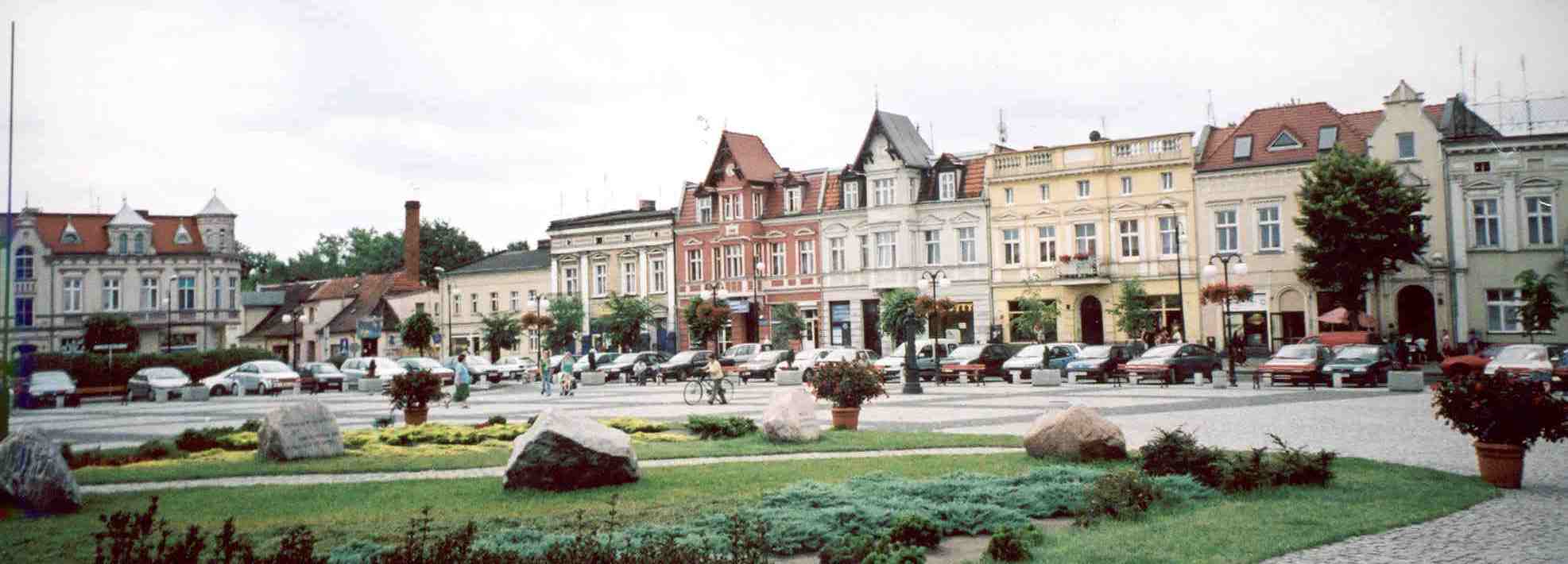
Obornik (Oborniki), Kreis Obornik, Posen
Obornik (Oborniki) is a town directly north of Poznan with an early history of inviting Germans to work at the manorial farms in the area as the area was depopulated by the Swedish Wars of the 1650's and the early 1700's. It also has an interesting history. It was a flash point in the relationships between Germans and Poles especially during the 1848 Uprising.
This town plays a prominent roll in the family history of my Will and Busse families.
Andreas Will married Catherine Kruger prior to 1776 and produced numerous children in Chowanowo (Kowanowo) (a few kilometers east of Oborniki) including Martin Will who was born in 1789 and confirmed in the Evangelical Church in Oborniki in 1802.
Martin Will in turn married Anna Dorothea Schendel in 1807 in
Pobiedziska and produced, among other children, three daughters in Kostrzyn in Schwersenz parish that married in my Spitzer family in Volhynia. Here is a genealogy of the Will family.Johan Martin Busse was the schultz (village head) in Chowanowo (Kowanowo) in Oborniki parish during the tenure of the Andreas Will family there. He was married to Anna Sonneberg in 1724 who produced many children including Martin Busse who later married Helena Remus and was the gutbesitzer (head of the estate house and the manorial farm) in
Ostrowek, a vorwerk (outlying area) of Vandsburg. Click here for the genealogy of that family.Here are pictures of Oborniki starting with the market plaza:

Then two picture of the Catholic Church:
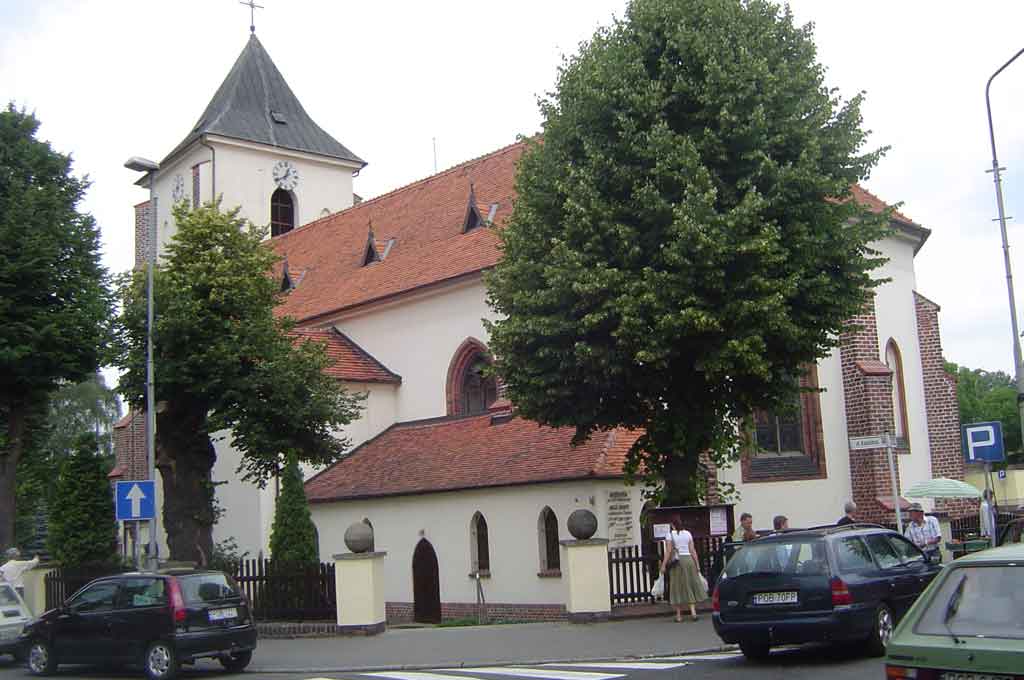
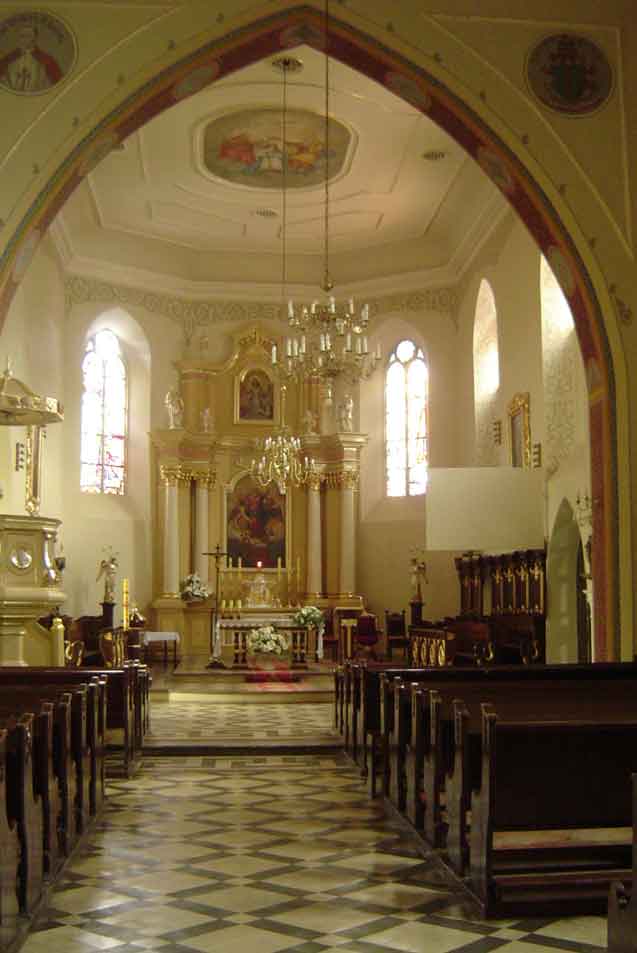
Followed by two pictures of the 1901 Lutheran Church (now used as a Catholic Church):
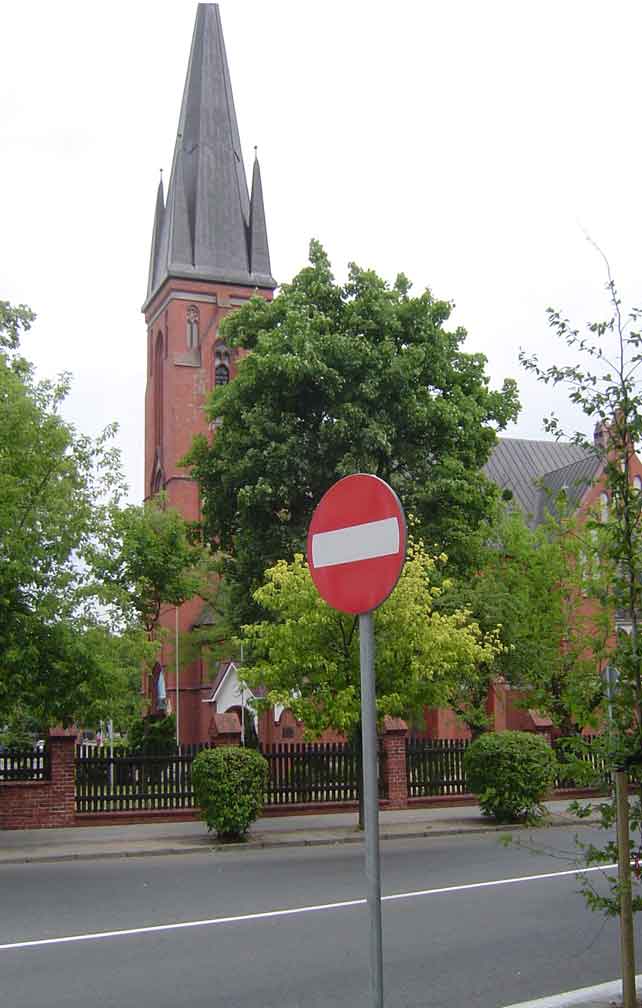
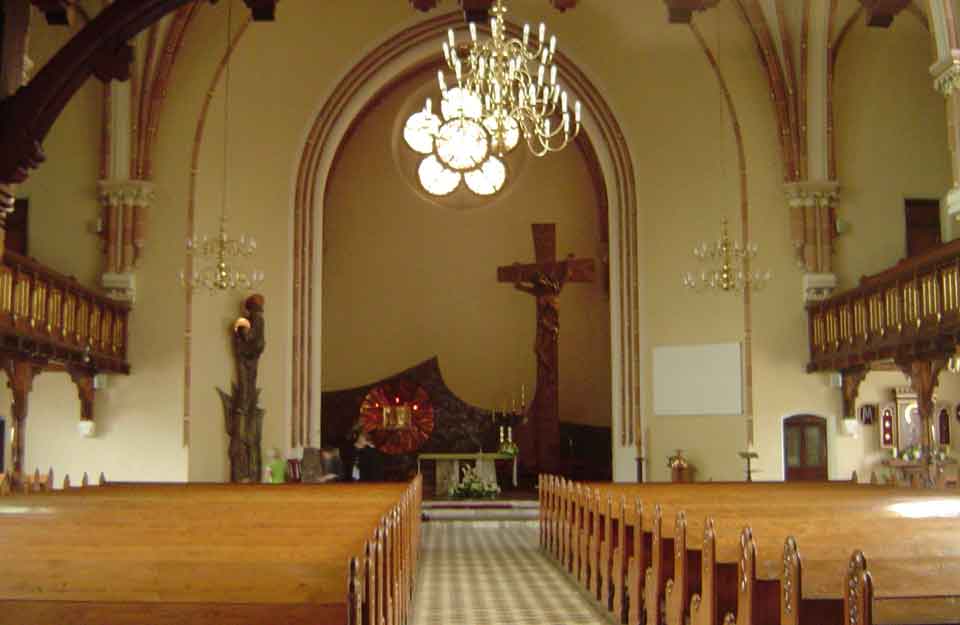
And two pictures of the old wooden church outside the town:
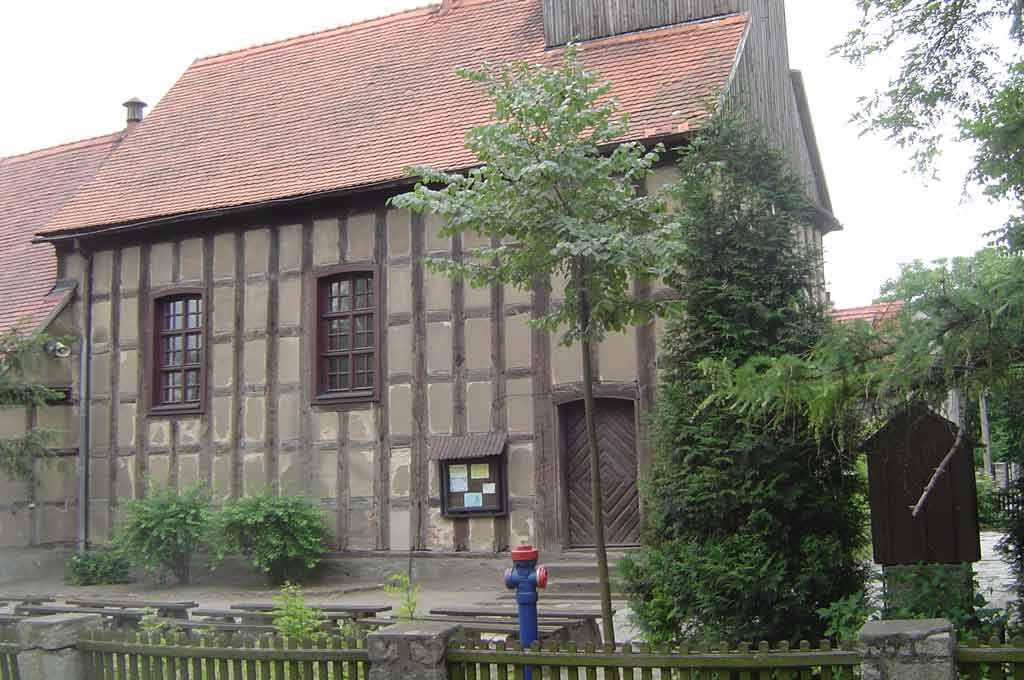
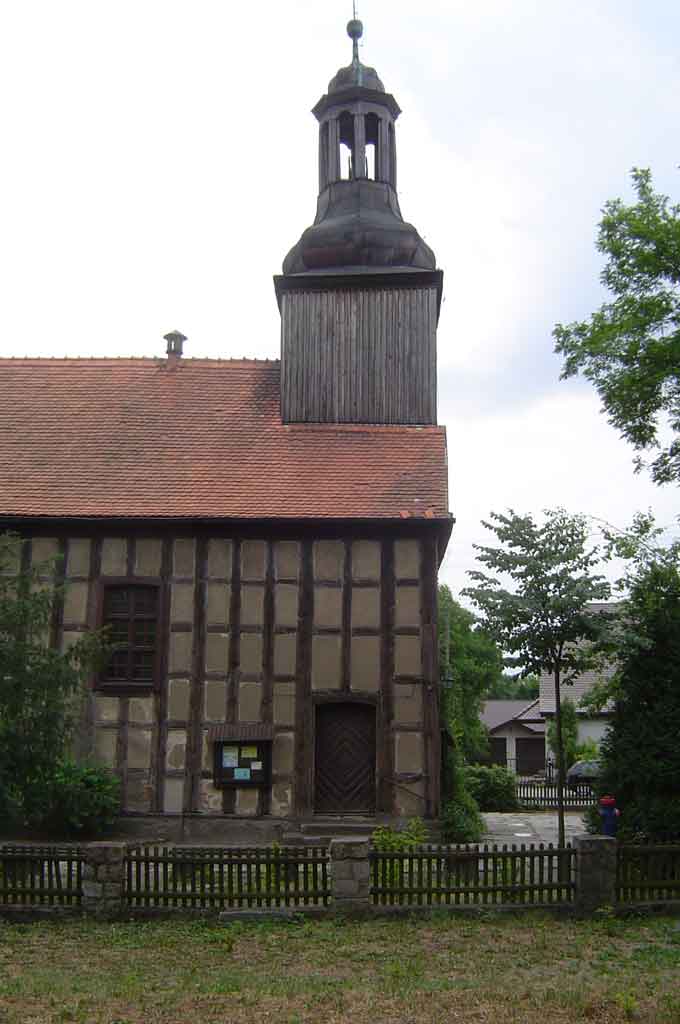
Click here for a list of web pages about the Nietze area.
Click here to go to other villages.
Please send any queries to Bill Remus at
October 8, 2010